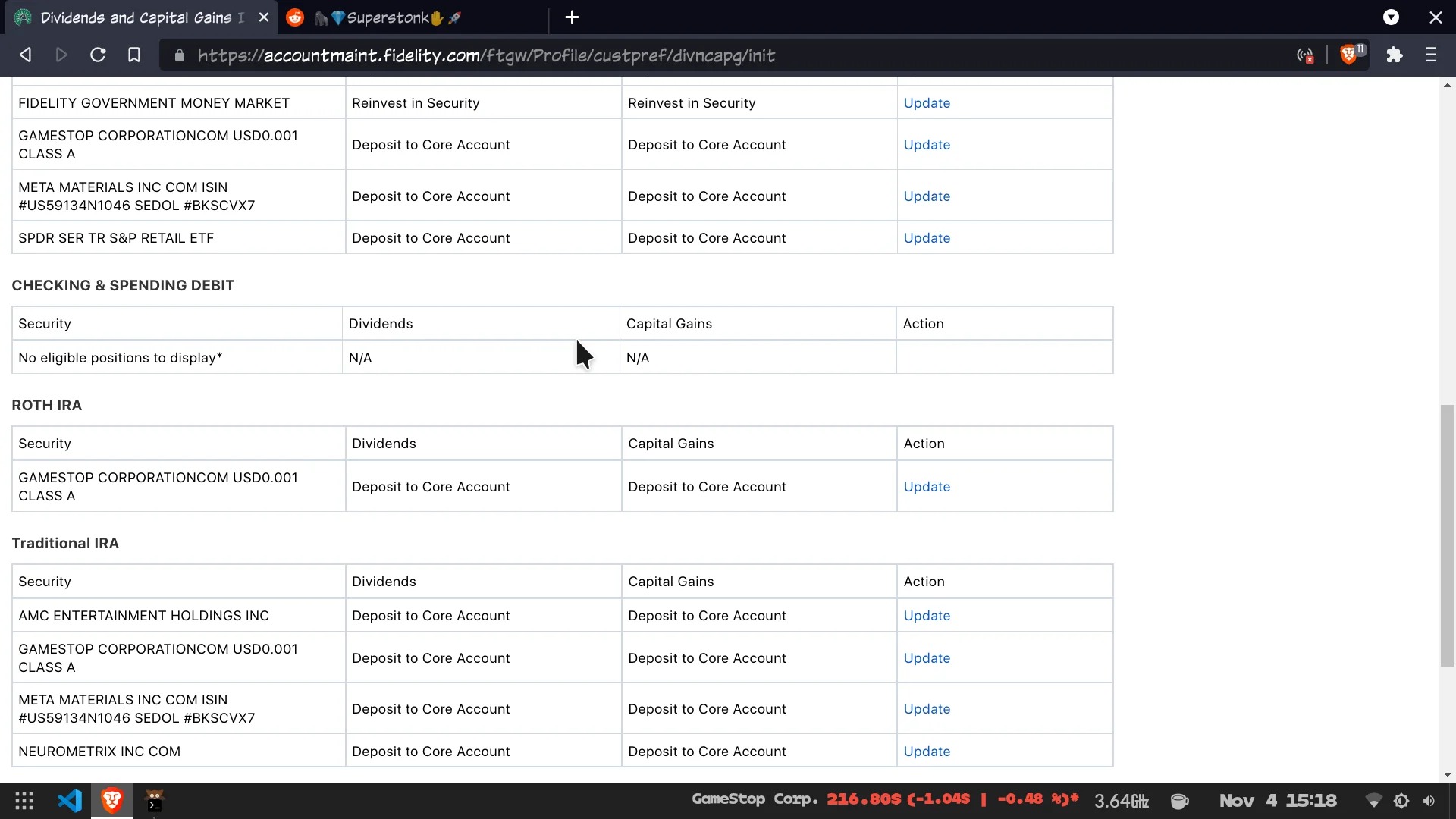

Finance
How To Talk About Money Management
Published: February 28, 2024
Learn essential tips for effective money management and financial planning. Discover how to discuss finance confidently and make informed decisions. Start your journey to financial empowerment now!
(Many of the links in this article redirect to a specific reviewed product. Your purchase of these products through affiliate links helps to generate commission for LiveWell, at no extra cost. Learn more)
Table of Contents
Introduction
Welcome to the world of money management, where financial empowerment and security await those who dare to delve into its intricacies. In this guide, we will explore the fundamental principles of managing money effectively, allowing you to navigate the complex landscape of personal finance with confidence and knowledge.
Money management is not just about accumulating wealth; it encompasses the art of making informed decisions, setting achievable goals, and securing a stable financial future. Whether you are a recent graduate starting your career, a seasoned professional looking to optimize your finances, or someone simply seeking to gain control over your money, mastering the principles of money management is essential.
This guide is designed to provide you with practical insights and actionable strategies to take control of your financial well-being. By understanding the core concepts of money management, you can pave the way for a more secure and prosperous future. From setting financial goals to navigating the intricacies of budgeting, saving, investing, and managing debt, this comprehensive guide will equip you with the knowledge and tools to make sound financial decisions.
Embark on this journey with an open mind and a willingness to embrace change. By the end of this guide, you will have the confidence to engage in meaningful conversations about money and the competence to steer your financial destiny towards success.
Understanding Money Management
Money management is the art and science of overseeing and controlling your financial activities, encompassing everything from earning and budgeting to investing and saving. At its core, effective money management involves making informed decisions to optimize the use of your financial resources, thereby enhancing your financial well-being.
One of the primary aspects of understanding money management is recognizing the importance of financial literacy. This entails having a comprehensive understanding of various financial concepts, such as compound interest, credit scores, investment strategies, and risk management. By honing your financial literacy, you can make informed decisions that align with your long-term financial goals.
Moreover, understanding money management involves grasping the concept of cash flow. By comprehending the inflow and outflow of your finances, you can gain valuable insights into your spending habits, identify areas for potential savings, and allocate resources effectively to achieve your financial objectives.
Another crucial element of money management is developing a keen awareness of the impact of financial decisions on your overall well-being. This includes recognizing the trade-offs involved in financial choices, understanding the implications of debt, and cultivating a mindset that prioritizes long-term financial security over short-term gratification.
Ultimately, understanding money management is about embracing financial responsibility and proactively taking charge of your financial future. By equipping yourself with the knowledge and skills to manage your money effectively, you can lay a solid foundation for achieving financial stability and realizing your long-term aspirations.
Setting Financial Goals
Setting clear and achievable financial goals is the cornerstone of effective money management. It provides a roadmap for your financial journey, guiding your decisions and actions towards tangible outcomes. When establishing financial goals, it’s essential to consider both short-term objectives, such as building an emergency fund, and long-term aspirations, such as retirement planning.
Begin by identifying your priorities and envisioning the lifestyle you aspire to achieve. Whether it’s purchasing a home, starting a business, or funding your children’s education, articulating your financial goals empowers you to align your resources with your aspirations. Additionally, setting specific, measurable, achievable, relevant, and time-bound (SMART) goals enhances your ability to track progress and stay motivated.
Furthermore, it’s crucial to differentiate between needs and wants when outlining your financial goals. Distinguishing between essential expenses and discretionary spending enables you to allocate resources judiciously, ensuring that your financial objectives take precedence over impulse purchases.
As you embark on this journey, remember that flexibility is key. Life is dynamic, and your financial goals may evolve over time due to changing circumstances or new opportunities. Embrace adaptability and be open to refining your goals as needed, ensuring that they remain relevant and reflective of your aspirations.
By setting clear financial goals, you empower yourself to make purposeful financial decisions, cultivate disciplined saving habits, and stay focused on achieving meaningful milestones. Ultimately, the process of setting and pursuing financial goals instills a sense of purpose and direction, propelling you towards a more secure and fulfilling financial future.
Budgeting and Tracking Expenses
Budgeting serves as the compass that steers your financial journey, allowing you to allocate resources wisely and prioritize your financial goals. At its core, a budget is a comprehensive plan that outlines your income and expenses, providing a clear overview of your financial situation. By creating and adhering to a budget, you can effectively manage your cash flow and make informed decisions about spending and saving.
When crafting a budget, start by documenting all sources of income, including salaries, bonuses, and investment returns. Next, categorize your expenses into essential categories, such as housing, utilities, groceries, and transportation, as well as discretionary spending, such as entertainment and dining out. By delineating your expenses, you gain visibility into your spending patterns and can identify areas where adjustments may be necessary.
Tracking expenses is a fundamental component of effective budgeting. Whether through dedicated budgeting apps or traditional spreadsheets, monitoring your expenditures enables you to assess your adherence to the budget, identify potential areas for cost-saving, and maintain financial discipline. Additionally, tracking expenses provides valuable insights into your spending habits, empowering you to make informed decisions about prioritizing expenditures.
Moreover, budgeting instills a sense of financial accountability, fostering a proactive approach to managing your money. By aligning your spending with your financial goals, you can make intentional choices that support your long-term aspirations, whether it’s building an emergency fund, paying off debt, or investing for the future.
Embracing budgeting and diligently tracking expenses empowers you to take control of your financial destiny. By cultivating mindful spending habits and aligning your resources with your priorities, you lay the groundwork for financial stability and resilience, ensuring that your hard-earned money serves as a catalyst for achieving your dreams.
Saving and Investing
Saving and investing are pivotal pillars of sound money management, serving as catalysts for building wealth and securing your financial future. While saving involves setting aside a portion of your income for future use, investing entails putting your money into vehicles that have the potential to generate returns over time.
Establishing a robust saving strategy is the first step towards financial resilience. By consistently setting aside a portion of your income, you can build an emergency fund to cushion against unexpected expenses and create a financial safety net. Additionally, saving enables you to pursue short-term goals, such as funding a vacation or making a significant purchase, without resorting to high-interest debt.
Investing, on the other hand, offers the opportunity to grow your wealth over the long term. Whether through stocks, bonds, mutual funds, or real estate, investing allows your money to work for you, potentially generating returns that outpace inflation and traditional savings vehicles. Diversifying your investment portfolio can help mitigate risk and optimize returns, aligning with your risk tolerance and financial objectives.
Moreover, understanding the power of compounding is essential in the realm of saving and investing. By harnessing the potential of compounding returns, you can amplify the growth of your savings and investments over time, leveraging the principle of earning returns on both the initial principal and the accumulated interest or returns.
Embracing a balanced approach to saving and investing empowers you to build financial security while positioning yourself for long-term prosperity. By cultivating a habit of regular saving and making informed investment decisions, you can harness the potential of your financial resources, ensuring that your money serves as a catalyst for achieving your aspirations and securing a prosperous future.
Managing Debt
Debt management is a crucial aspect of effective money management, as it directly impacts your financial well-being and long-term stability. While judicious use of credit can facilitate important purchases and investments, managing debt responsibly is essential to avoid financial strain and maintain a healthy financial profile.
Begin by gaining a comprehensive understanding of your outstanding debts, including credit card balances, student loans, mortgages, and any other liabilities. By assessing the terms, interest rates, and repayment schedules of your debts, you can formulate a structured approach to managing and reducing your outstanding obligations.
Creating a debt repayment plan is a proactive step towards regaining financial control. Prioritize high-interest debts and consider consolidating multiple debts into a single, more manageable payment, potentially with a lower interest rate. By allocating a portion of your income towards debt repayment, you can systematically reduce your outstanding balances and alleviate the burden of debt over time.
Furthermore, maintaining a good credit score is paramount to accessing favorable financial opportunities in the future. By managing your debt responsibly and making timely payments, you can enhance your creditworthiness, potentially qualifying for lower interest rates on future loans and credit products.
While managing existing debt is crucial, exercising prudence in taking on new debt is equally important. Before incurring additional liabilities, carefully evaluate the necessity and potential impact of the debt on your overall financial health. Strive to strike a balance between leveraging credit for meaningful purposes and avoiding excessive debt that may impede your financial progress.
By adopting a proactive approach to debt management, you can alleviate financial stress, enhance your financial resilience, and pave the way for a more secure and prosperous future. By cultivating responsible borrowing habits and systematically reducing outstanding debts, you position yourself to achieve greater financial freedom and unlock opportunities for long-term prosperity.
Talking About Money with Others
Conversations about money can evoke a range of emotions, from discomfort to empowerment, yet engaging in open and constructive dialogue about financial matters is essential for personal growth and mutual understanding. Whether discussing financial goals with a partner, seeking advice from a financial advisor, or navigating salary negotiations, effective communication about money is a foundational skill in achieving financial well-being.
When broaching financial topics with a partner or family members, it’s crucial to approach the conversation with empathy and a spirit of collaboration. Establishing shared financial goals, outlining individual contributions, and creating a framework for transparent communication can foster trust and alignment, strengthening the foundation for joint financial success.
Seeking guidance from a financial advisor or mentor can provide valuable insights and support in navigating complex financial decisions. By articulating your objectives, concerns, and risk tolerance, you can leverage their expertise to make informed choices and optimize your financial strategies. Additionally, engaging in ongoing discussions with a financial professional can enhance your financial literacy and empower you to take charge of your financial future.
Furthermore, discussing compensation and financial advancement in a professional setting requires tact and preparation. Researching industry standards, articulating your value proposition, and leveraging negotiation techniques can bolster your confidence in advocating for fair and equitable compensation, ensuring that your financial contributions are duly recognized and rewarded.
Embracing open and honest conversations about money can foster a culture of financial empowerment and mutual support. By cultivating effective communication skills and approaching financial discussions with empathy and respect, you can strengthen personal and professional relationships while advancing towards shared financial objectives.
Conclusion
Congratulations on embarking on the journey to master the art of money management. By delving into the fundamental principles of financial empowerment, you have equipped yourself with the knowledge and tools to navigate the complex terrain of personal finance with confidence and purpose.
Understanding money management is not merely about accumulating wealth; it’s about making informed decisions, setting achievable goals, and securing a stable financial future. By honing your financial literacy, setting clear and actionable financial goals, embracing budgeting and tracking expenses, and cultivating disciplined saving and investing habits, you have laid a solid foundation for financial resilience and prosperity.
Moreover, managing debt responsibly and engaging in open and constructive conversations about money with others are pivotal steps towards achieving holistic financial well-being. By approaching financial discussions with empathy, seeking guidance from trusted advisors, and advocating for fair compensation, you have positioned yourself to harness the power of effective communication in shaping your financial future.
As you continue on this journey, remember that flexibility, adaptability, and ongoing learning are key attributes in the realm of money management. Life is dynamic, and your financial goals and circumstances may evolve over time. Embrace change, stay informed about financial trends and opportunities, and remain committed to making purposeful financial decisions that align with your aspirations.
By integrating the principles of money management into your daily life, you are not only securing your own financial well-being but also contributing to a culture of financial empowerment and resilience. Your journey towards financial mastery is a testament to your dedication to shaping a more secure and prosperous future for yourself and those around you.
Remember, the path to financial empowerment is not a solitary one. Seek support, share knowledge, and continue to engage in meaningful conversations about money. Together, we can foster a community of informed and empowered individuals who are poised to achieve their financial aspirations and contribute to a more financially resilient society.














